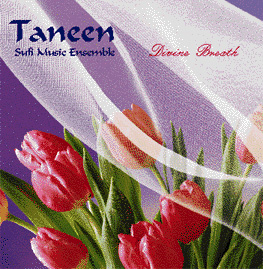|
Sufi Poetry set to Music |
 |

![]()
![]()
Mystic
Poet, Kabir
by Sheikh Saleem Ahmed
from vol. 6, no. 2
posted July 15, 2002
Sonnets
by
Moulana Shah Maghsoud
from vol. 5, no. 4
posted October 19, 2001
Breeze
of Dawn
by Hafez
posted September 1, 2001
Contact
Us:
Sufism Journal
14 Commercial Blvd.
Suite 101
Novato, California
94949 USA
Tel: +1 415 382 SUFI
Tel: +1 415 382 7834
eMail: sufismjournal@ias.org
The
Sufism Journal is a publication
of the International Association of
Sufism, a non-profit organization
affiliated with the United Nations.
The
various articles presented
here represent the individual
views of their authors. SUFISM
does not imply any gender bias
by the use of feminine or
masculine terms, nouns
and/or pronouns.

This
Article Appeared
in Volume 6, Number 1
©
Sufism Journal and the
International Association of
Sufism. All rights reserved.
|
excerpt
from
Gulestan
by Sa'adi of Shiraz |
|
|
Experience Teaches Once there was a caravan going to Hijaz. Many people were in this caravan including a dervish. After a few days in the desert, suddenly the caravan was attacked by a gang of highway robbers. They took everyone's money, jewelry, gold and pearls and left them in agony. People, losing their wealth, became sad and wept for their lost treasure except the dervish whose manner and position remained unchanged. The passengers became curious, "Maybe the robbers did not take his money, maybe they had pity on him and left him alone," they thought. Finally, one of the passengers asked the dervish if he also had been robbed and if so, why he was not crying like the others. The dervish replied, "I was robbed just |
|
|
like the rest of you, but I am not so much attached to my gold and treasure to lose heart when losing them." They asked him, "What caused you to come to this state of mind?" The dervish replied, "When I was young I had a most understanding, beautiful and generous friend. I was very attached to him and his friendship. One day, all of the sudden, he became sick and no treatment helped him to recover and he died. His death was overbearing. I mourned for a long time. One day I did not find it useful to mourn any more so I stopped and made a promise that for the rest of my life I would not become attached to anything or any desire that its loss brings so much pain." It
is joyous to pull the treasure from the ocean
Love is Dear Only to the Heart of the Lover Once there was a king who heard about the story of Leili and Majnun and knew that Majnun left his life in the city and strayed in the desert and field. He called his ministers and soldiers to bring Majnun to his palace. Soldiers went to the field and found Majnun and brought him to the palace of the king. The king asked Majnun, "Why did you leave the human society, leave your home and stay in the caves and deserts: Why did you not find social life pleasing?" Majnun replied, "I left my family and my friends because they were blaming me for my love for Laili. Oh, how I wish the day will come when they see that beauty and they will all fall in love with her and regret the blame they put on me." Majnun talked and talked about Leili's beauty so much that the king became eager to see Laili. So he asked his soldiers to bring her to his court. Soldiers went to Laili's tribe and brought her to the presence of the king. To the king's astonishment, Laili was weak, dark skinned, and not pretty. "She is plain, so very plain and common. My servants are prettier than she is. She has no grace, she has no beauty," the king thought. Majnun sensing the king's thought said, "Oh, King, You should see the beauty and the grace of Leaili through my eyes. You have to have Majnun's eye for the mystery of her beuaty to be revealed to you." Two
lovers sailed into the sea
|
|



